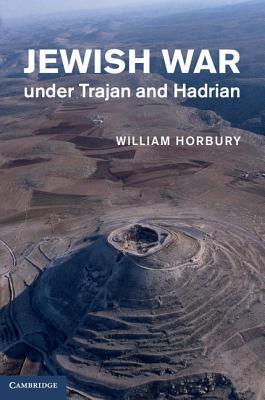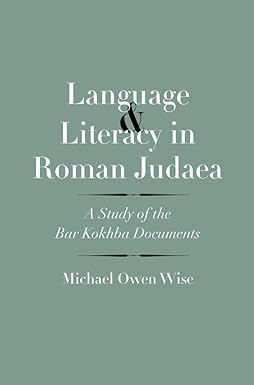NARRATED BY WILLIAM R. LYMAN & WILLIAM CRAN
Professor Harold W. Attridge Professor Allen D. Callahan
Professor Elizabeth Clark Professor Shaye J.D. Cohen
Professor John Dominic Crossan Professor Paula Fredricksen
Professor Holland Lee Hendrix Professor Helmut Koester
Professor Wayne A. Meeks Professor Eric Mayers
Professor Elain H. Pagels Professor L. Michael White
Part Two
Q and the So-Called Late Writing
of the New Testament
by Mark Mountjoy
Many New Testament scholars believe that the Gospel of Mark was the first Gospel written and that all the Gospels were written after the destruction of the Second Temple in AD 70. However, there is no solid proof to support these claims.
According to Church Tradition, Mark got his information for his Gospel from the Apostle Peter, who was like a father to him (1 Pet. 5:13). But we know that Peter was killed in the 60s AD, before the Jewish rebellion against Rome that lasted from AD 66 to 70. This means that if Mark really did get his account from Peter, he must have written his Gospel before Peter died, not after the Temple was destroyed. When we read the Gospel of Mark, especially the part called the Olivet Discourse where Jesus talks about the future, there’s nothing that suggests Mark was writing about the destruction of the Temple as if it had already happened. If Mark wrote after AD 70, you would expect him to mention some of the specific details of how the Romans destroyed Jerusalem and the Temple. But he doesn't do that.
Some scholars have also come up with the idea of a lost source called "Q" that they believe was used by the Gospel writers. But this is just a theory, and there are good reasons to question it. Just because some of the Gospels share similar stories or sayings doesn’t necessarily mean they were copying from a common source. They could have just been reporting the same things that Jesus said and did during his seven year earthly ministry.
Another very important point to raise about the Olivet Discourse in Matthew 24, Mark 13, and Luke 21 is this: These passages record Jesus’ prophecy about the destruction of the Second Temple and the fall of Jerusalem, and they present it as a future event, not as something that had already happened. If we take these Gospel accounts at face value, then we have to conclude one of two things. Either Jesus really did predict the destruction of the Temple before it occurred, and the Gospel writers accurately recorded his words, or the Gospels were written after the fact as fake prophecies into Jesus’ mouth to make it seem like he had predicted the events of AD 70.
If the first option is true, then we have strong evidence for Jesus' divine knowledge and authority. Only someone who was truly the Son of God could have foreseen the devastating and unlikely events that would take place decades later. This would also mean that the Gospels are reliable historical documents that preserved Jesus’ authentic teachings and actions.
On the other hand, if the second option is true, then it would mean that the Gospel writers were engaged in deliberate, misrepresentations, and deceptions. They would have been putting words in Jesus’ mouth that he never actually said, in order to make him look like a true prophet. This would call into question the integrity and trustworthiness of the Gospels as a whole. When we consider the character of the Gospel writers and the overall message of their books, it seems very unlikely that they would have resorted to such blatant dishonesty.
The Gospels present themselves as eyewitness accounts of Jesus’ life and ministry, written by people who knew him personally or had access to reliable sources. They also emphasize the importance of truth, honesty, and integrity, and they portray Jesus as someone who always spoke the truth, even when it was difficult or unpopular.
Moreover, if the Gospel writers had simply made up the Olivet Discourse after the fact, they would have risked being exposed as frauds by their contemporaries who had also lived through the events of AD 70. Many people would have known whether Jesus had actually predicted the destruction of the Second Temple or not, and they could have easily refuted the Gospel accounts if they were false. In light of all this, the most reasonable conclusion is that Jesus really did predict the fall of Jerusalem and the destruction of the Second Temple, and that the Gospel writers faithfully recorded his prophecy. This means that the Gospels can be trusted as accurate historical documents, and that Jesus’ words in the Olivet Discourse are a powerful testimony to his divine identity and authority. But the idea that they were written later and deliberately falsified destroys any confidence that they provide a reliable and trustworthy account of Jesus’ words and deeds, including his remarkable prophecy about the fate of Jerusalem and its Temple.
Finally, Late theorists also argue that the Apostle Paul was the first to write about the life and meaning of Jesus’ ministry and message. They say that Paul’s letters came before the Gospels and shaped how the Gospel writers understood and presented Jesus. However, this idea doesn’t make sense when we consider the fact that Paul himself was killed in the mid-60s AD, before the Jewish rebellion against the Romans even started. If Paul’s letters were written after the war, as many New Testament scholars claim, then they couldn’t have been written by Paul himself. But if Paul’s letters were written before the war, then they can't be used to argue that the Gospels must have been written after AD 70. The truth is, you can't have it both ways. Either Paul’s letters were written by him before the Jewish rebellion, or they were written by someone else after the war. If Paul wrote them, then they provide strong evidence that the message about Jesus was already being shared and believed before the destruction of the Temple. This means that the Gospels could have been written earlier than some scholars think, and that they’re not just made-up stories based on later events. On the other hand, if Paul didn’t write his own letters, then we have to question a lot of what we know about early Christian history and teaching. The letters of Paul are some of the earliest and most important documents we have from the early church. They give us insight into what Christians believed and practiced in the decades immediately following Jesus’ life and ministry—but ahead of the destruction of Jerusalem, which all of Paul’s warnings anticipate.
So, when we look at the evidence carefully, it seems much more likely that Paul’s letters were indeed written by him before his death and before the Jewish-Roman War. This fits with what we know about Paul’s life and ministry from the Book of Acts and from early church tradition.
In conclusion, the idea that Paul was the first to write about Jesus and that his letters shaped the Gospel accounts is based on some shaky assumptions. When we take a closer look at the historical facts, it becomes clear that this theory doesn’t hold up under scrutiny. The Gospels and Paul’s letters can both be trusted as reliable sources for understanding Jesus and the early Christian movement, and the urgency with which they proclaimed the approaching eschaton (see, e.g., Ro. 13:11-12; James 5:1-9 and 1 Pet. 4:7) helps us to ascertain their nearness to the looming First Great War far better than any exact dates or the order in which they were written.
Related Studies
 |
 |
 |
